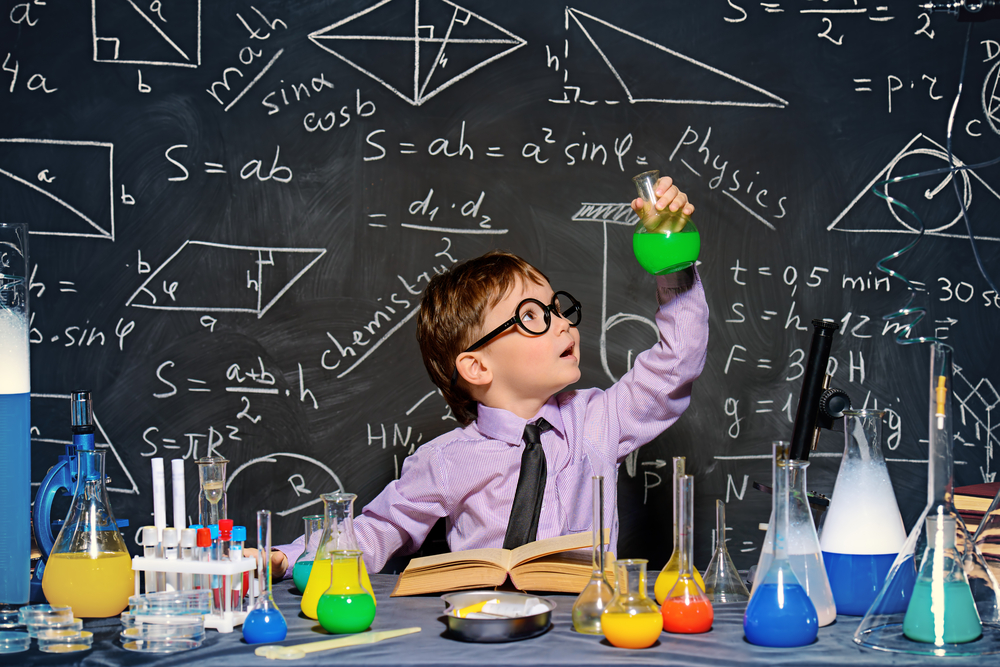Historical Knowledge Science Worksheets for Ages 4-8
5 filtered results
-
From - To
Explore our engaging Historical Knowledge Science Worksheets designed specifically for children ages 4-8. These worksheets introduce young minds to important historical concepts while developing their critical thinking and comprehension skills. Featuring colorful visuals and age-appropriate activities, these resources make learning fun and interactive. Kids will discover key figures in history, understand significant events, and develop a sense of time and chronology. Perfect for classroom use or at-home learning, our worksheets encourage curiosity and a love for history, making them ideal tools for early education. Foster your child's learning journey and spark their interest in the past with our carefully crafted worksheets!
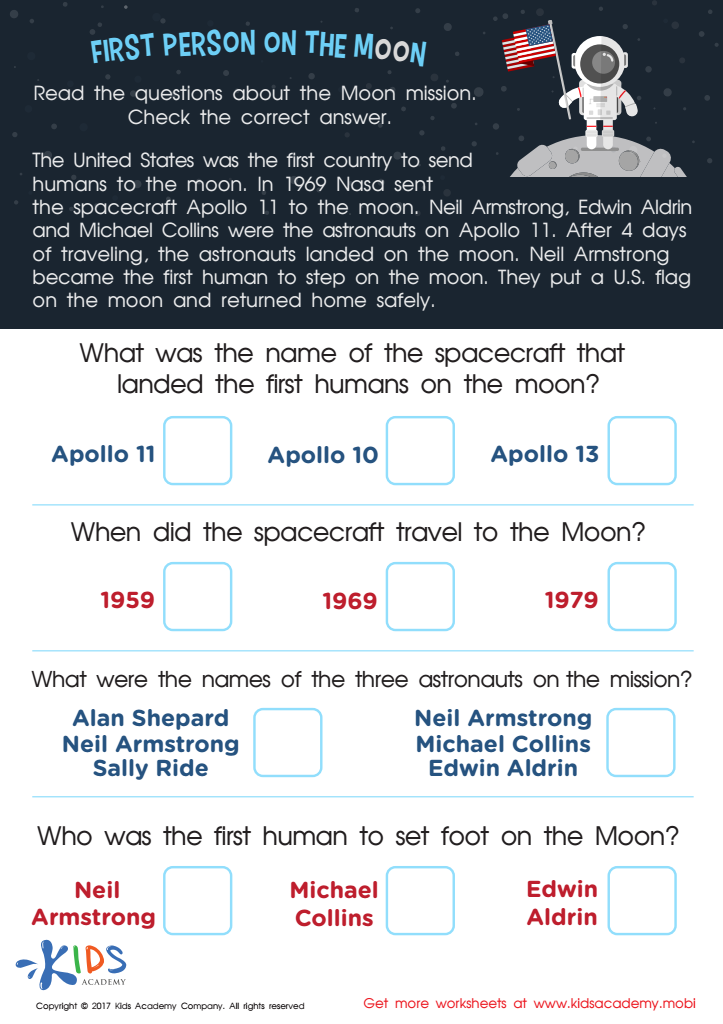

First Person on the Moon Worksheet
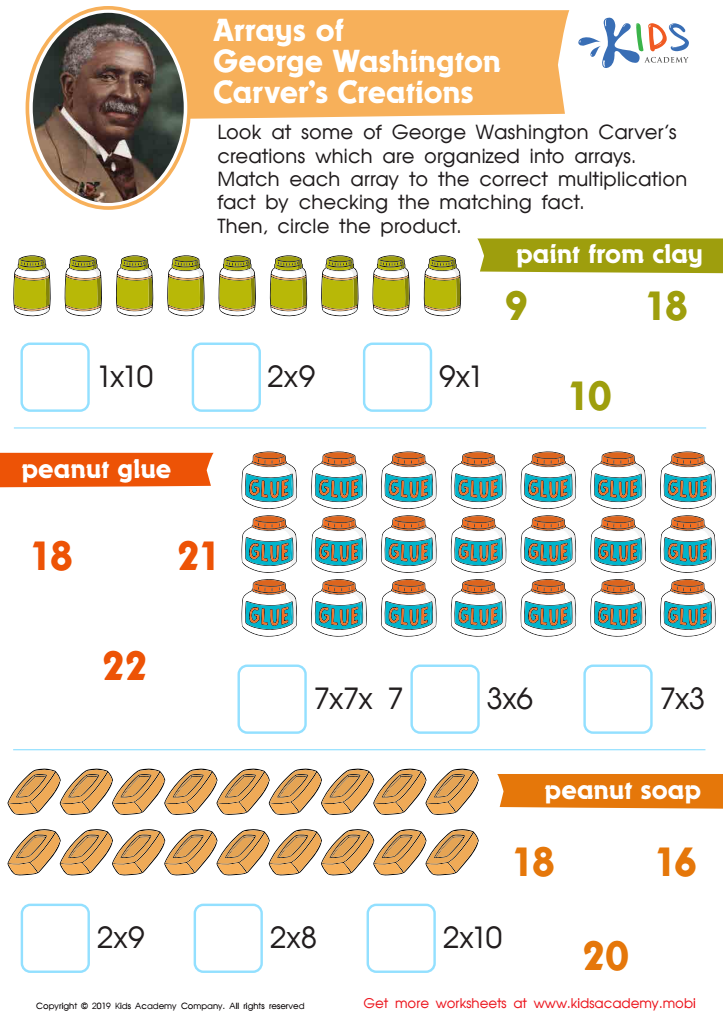

Arrays of George Washington Carver’s Creations Worksheet
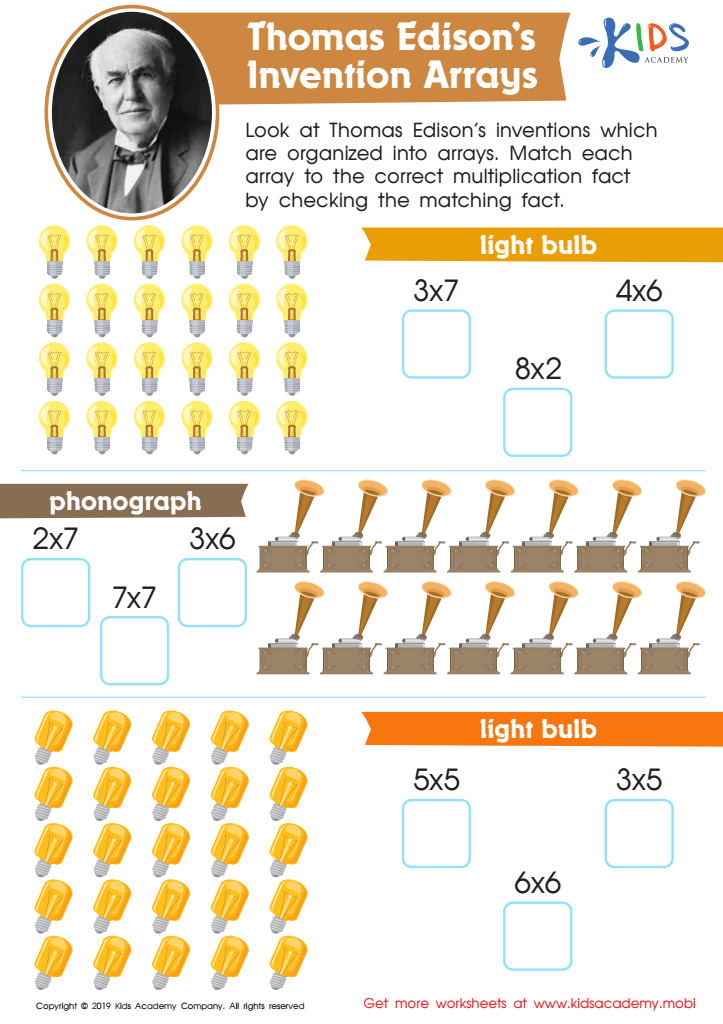

Thomas Edison’s Invention Arrays Worksheet
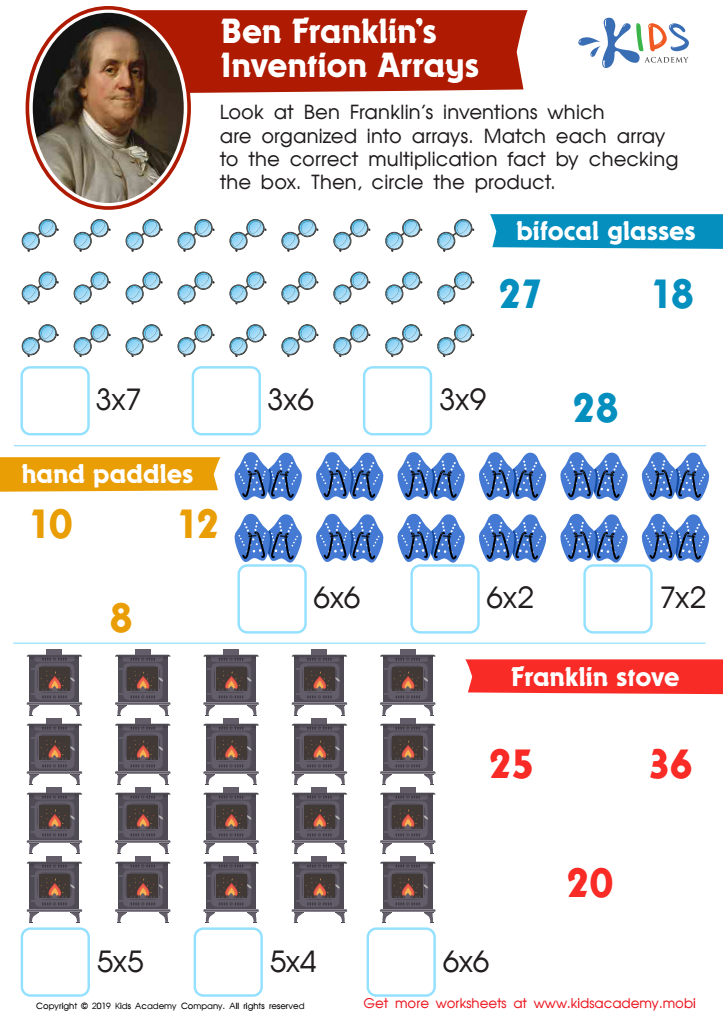

Ben Franklin’s Invention Arrays Worksheet
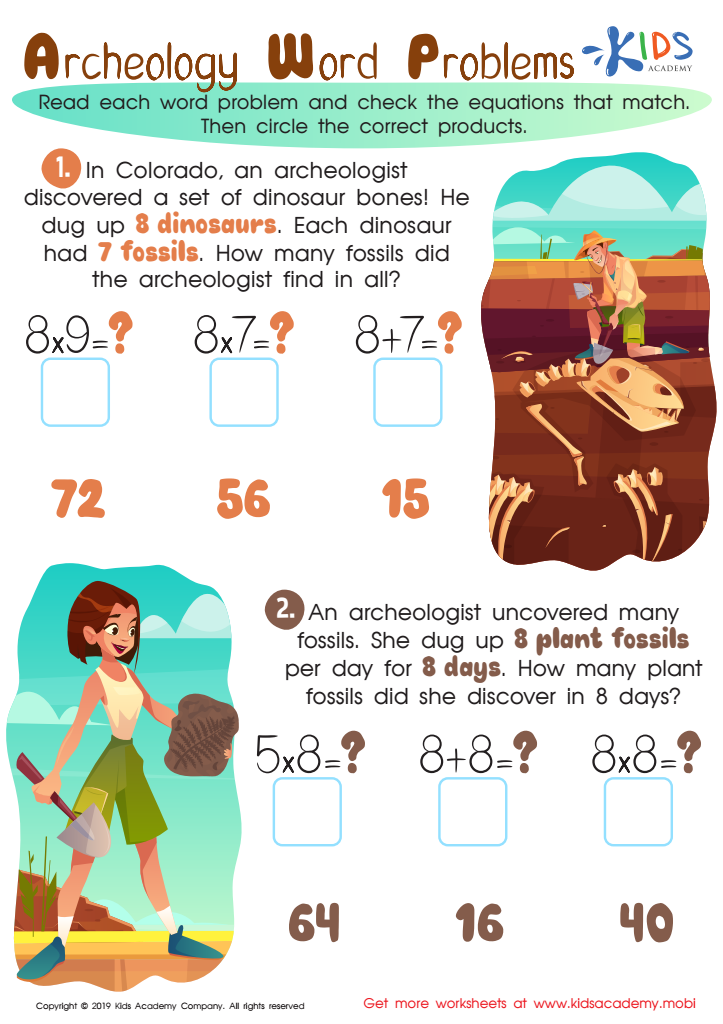

Archeology Word Problems Worksheet
Parents and teachers should prioritize Historical Knowledge Science for children aged 4-8 because it lays the foundation for critical thinking, cultural awareness, and a sense of identity. At this developmental stage, children are naturally curious and eager to learn about the world around them. Introducing them to historical concepts through engaging stories and relatable characters allows them to understand the significance of their own heritage and the contributions of diverse cultures.
Teaching historical knowledge helps children make connections between past and present, fostering an understanding of how history shapes their lives today. It encourages empathy by allowing them to step into the shoes of others, appreciating different perspectives and experiences. Additionally, integrating historical concepts into science education reinforces the idea that science itself is a journey of discovery, influenced by historical contexts and figures.
Furthermore, these lessons can stimulate creativity and imagination, as children visualize historical events and consider how science has evolved over time. By nurturing an interest in historical knowledge science early on, parents and teachers contribute to well-rounded individuals who are informed, empathetic, and prepared to navigate an increasingly complex world. This ultimately helps in building responsible citizens who appreciate and learn from the past while looking toward the future.

 Assign to My Students
Assign to My Students








